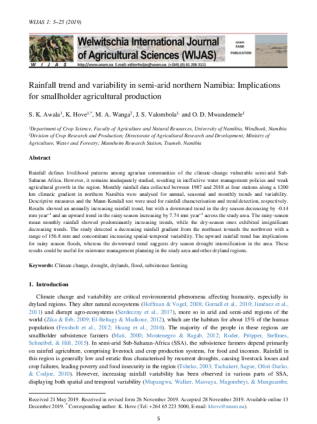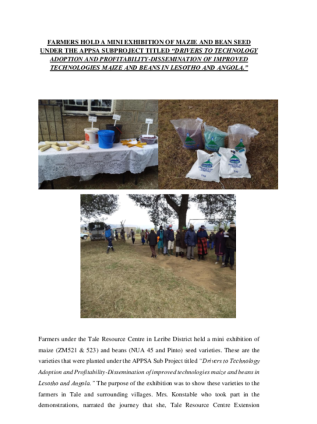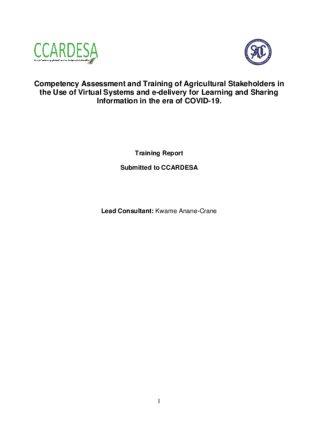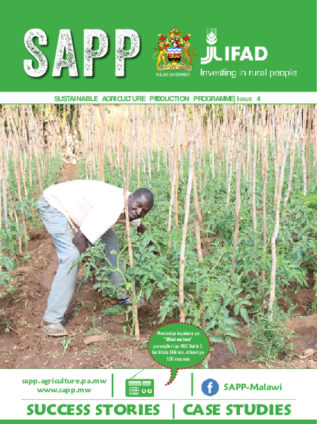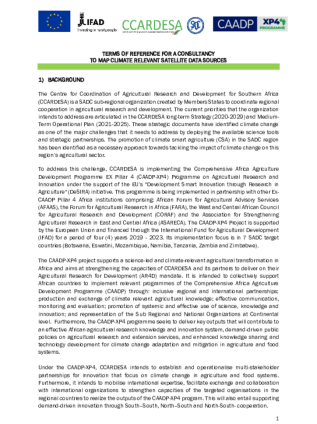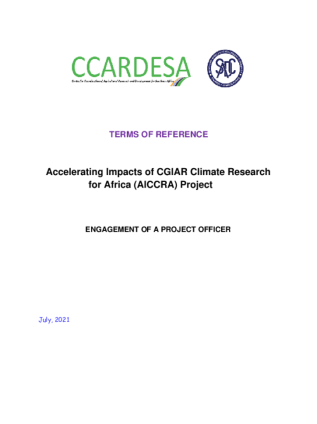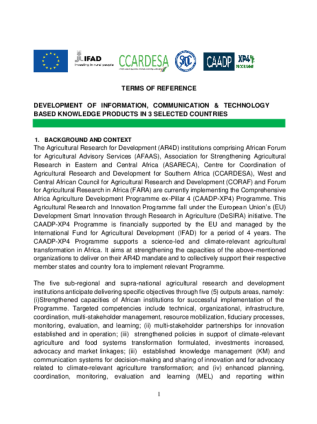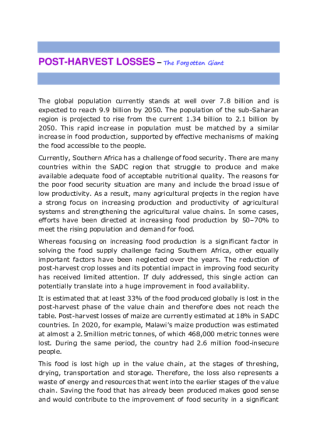Difusão dos Conhecimentos das Escolas na Machamba do Camponês dos Produtores Treinados para os não Treinados, no Distrito de Matutuine
Devido a necessidade de incrementar a produção e a produtividade agrária, principalmente nos países em desenvolvimento, há uma constante busca e introdução de novas abordagens de extensão agrária que se mostram cada vez mais eficientes na massificação do uso das práticas melhoradas de produção. A metodologia de Escola na Machamba de Camponês (EMC) é uma das mais recentes práticas de extensão introduzida nos países em desenvolvimento. Em Moçambique, esta metodologia foi introduzida a dez anos e está a cerca de oito anos a ser massificada pelo Programa Nacional de Segurança Alimentar – PANII. Passados dez anos da sua introdução em Moçambique, não existe informação estruturada que mostra se os produtores já treinados nas EMCs estão a partilhar com os não treinados, os conhecimentos e experiências adquiridas nos treinamentos, uma vez que a eficiência deste método se baseia na partilha de informação entre estes dois grupos. Para colmatar esta lacuna de informação foi conduzida a presente pesquisa com objectivo de saber se existe uma difusão dos conhecimentos introduzidos nas EMCs, dos produtores treinados para os não treinados e identificar os aspectos chaves que deverão ser considerados no processo de organização e condução das EMCs. A presente pesquisa piloto foi conduzida na província de Maputo, distrito de Matutuine. Este distrito, faz parte dos 12 distritos que estão a implementar as EMCs no âmbito do PAN II. Os dados da pesquisa foram colectados por meio de um questionário dirigido aos produtores treinados de quatro EMCs graduadas e aos produtores não treinados residentes nos quatro povoados onde foram implementadas as escolas e em quatro povoados vizinhos, não beneficiários de projecto de EMCs. No total foram inquiridos 244 produtores, dos quais 92 treinados e 152 não treinados. Os resultados da pesquisa mostram que apesar de uma grande assimilação dos conhecimentos disseminadas nas EMCs pelos treinados, há uma fraca difusão dos mesmos conhecimentos (dos agricultores treinados para os não treinados) para além de uma difusão selectiva dos conteúdos introduzidos. A fraca difusão poderá ter sido registada pelo facto de os grupos sociais que compõem a maioria da população do distrito nomeadamente as mulheres, os analfabetos e os pequenos agricultores, mostrarem-se ter menos probabilidade de receber as informações das escolas através dos treinados. Mas também, a fraca aplicação dos conhecimentos da EMC, pelos produtores treinados, terá contribuído para a sua fraca difusão, uma vez que há uma associação entre aplicação e difusão dos conhecimentos da EMC. Por outro lado, os resultados mostram que certos grupos sociais dos agricultores treinados nomeadamente: os que são membros das associações, os que frequentaram a escola, e os que têm acesso a uma fonte alternativa de rendimento mostraram-se ser mais activos no processo de difusão e recepção de informações das escolas. Em relação às redes sociais interpessoais mais usadas na difusão de informações da EMC chegou-se a conclusão de que são as constituídas por aproximação social e geográfica.
Filimone, C. (2011). Difusão dos Conhecimentos das Escolas na Machamba do Camponês dos Produtores Treinados para os não Treinados, no Distrito de Matutuine. Relatorio de pesquisa nº 2, 2011. Maputo: Instituto de Investigação Agrária de Moçambique. p. 41



